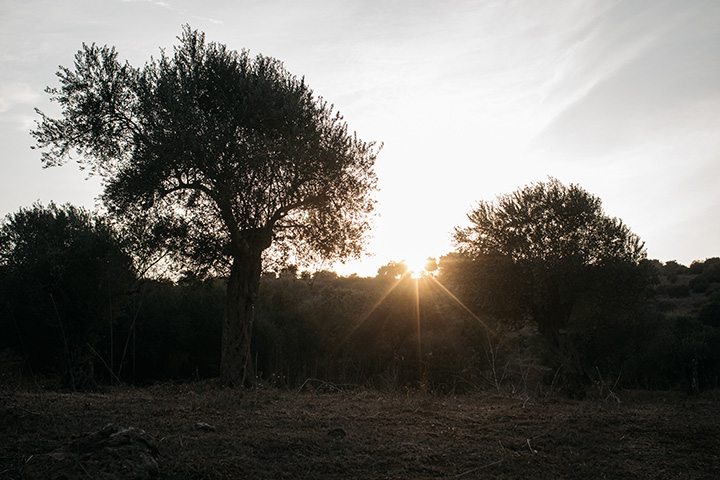Yael's Holy Land Reflections Credit: Avishag Shaar-Yashuv Day of Darkness, Day of LightJuly 14, 2021
There’s an important story about the French emperor, Napoleon Bonaparte, and his encounter with the Jewish people while they were in mourning. One day, Napoleon was travelling through a Jewish town in Europe and decided to enter a synagogue. Inside, there were just a few candles providing light, and the atmosphere was somber and gloomy. He saw people sitting on the floor, crying and reading from ancient texts. And he turned to a Jewish officer who was with him and asked, “What great misfortune occurred?” He assumed that something terrible had just happened to the Jews. The Jewish officer knew that it happened to be the Jewish holy day of Tisha B’Av. So, he said to Napoleon, “On this day, every year, Jews around the world gather to mourn the destruction of the Temple in Jerusalem.” Napoleon asked the officer, “When did this happen?” The officer replied, “Two thousand years ago.” Napoleon was shocked. He said, “Any people that still cry for their land and their Temple after two thousand years will surely merit seeing both returned to them.” Remembering the TragediesI have been mourning on Tisha B’Av every year of my life, and have vivid memories from my childhood of hearing the chilling cries of Holocaust survivors who were part of our synagogue in Chicago on this night. They knew, better than anyone, the tragedy of persecution and not having a Jewish homeland. In an era of heightened Jewish persecution and perpetual, violent attacks against Israel, this year Tisha B’Av and its history are at the forefront of my mind. Tisha B’Av will be observed by Jews around the world beginning at sundown on Saturday, July 17. It is a solemn day that marks the many tragedies that have occurred on this date — the ninth of the Hebrew month of Av on the Hebrew calendar — throughout history. Jews have marked this sacred holiday for thousands of years by fasting, mourning, and gathering in synagogues. Anyone who has studied history knows that the last two thousand years have been filled with persecution, pain, and suffering for the Jewish people. We believe this can be traced to the destruction of God’s Holy Temple in Jerusalem on this date, which led to Jews losing sovereignty in the Holy Land. Praise God, recent generations of my people have witnessed amazing miracles and we have returned to our homeland. But why do we still mourn today? Why do we cry over something that occurred 2,000 years ago? Believing in MiraclesPart of Napoleon’s prediction has come true. The Jewish people have returned to Israel. But Jews still face bitter persecution. And God’s Temple is still in ruins. There are so many biblical promises that we still yearn for, like God’s return to Jerusalem and lasting peace in the Holy Land. But if God can bring His people back to Israel after 2,000 years, if He can reestablish a Jewish state in the Holy Land, if He can make the desert land of Israel bloom, then we must trust that anything is possible. While we wait in mourning, we never lose hope. This hope carries us through the darkness and allows us to cry tears of hope and joy, as well as tears of sorrow. The day of Tisha B’Av is indeed a day of deep darkness; but it is also a day of great light. It is a day on which we hold on to hope no matter how bad things may seem. The late Rabbi Jonathan Sacks, the former Chief Rabbi of England, once said, “To be a Jew is to be an agent of hope in a world serially threatened by despair.” If we believe and trust in God, how could we ever be anything less? As people of faith, we can never give up hope — and when we hold on to this hope despite everything, hope will hold us and carry us through anything. If we hope for it, pray for it, and work for it, and trust in God’s promises, this will inspire others to do so as well. |
|
|



